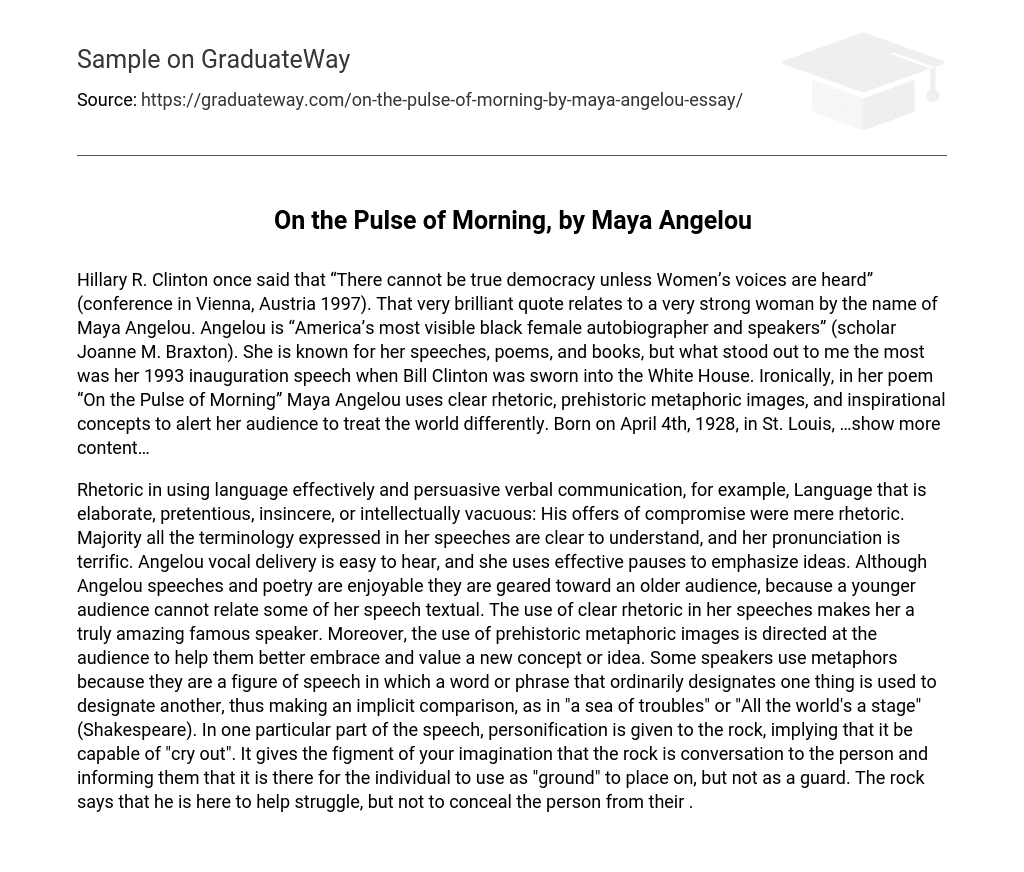According to Hillary R. Clinton, the inclusion of women’s voices is crucial for true democracy (conference in Vienna, Austria 1997). Maya Angelou, recognized as America’s prominent black female autobiographer and speaker by scholar Joanne M. Braxton, exemplifies this sentiment. Angelou’s various works such as speeches, poems, and books have left a lasting impact. Particularly noteworthy is her 1993 inauguration speech during Bill Clinton’s presidency. In her poem “On the Pulse of Morning,” Angelou employs persuasive rhetoric, ancient metaphors, and uplifting ideas to encourage a change in society. Born on April 4th, 1928, in St. Louis, Angelou’s influence continues to resonate.
Rhetoric is the art of using language effectively and persuasively. It involves the use of elaborate, pretentious, insincere, or intellectually vacuous language to create a persuasive effect. In the case of Maya Angelou, her speeches are characterized by clear terminology and terrific pronunciation. Her vocal delivery is easy to hear, and she effectively uses pauses to emphasize ideas. While her speeches and poetry are enjoyable, they are primarily aimed at an older audience. Younger audiences may struggle to relate to some of the textual content. Nevertheless, Angelou’s use of clear rhetoric in her speeches makes her a truly remarkable and famous speaker.
Furthermore, Angelou employs prehistoric metaphoric images to engage and encourage the audience to embrace new concepts or ideas. Metaphors are figures of speech in which a word or phrase that normally refers to one thing is used to designate another, creating an implicit comparison. For example, Shakespeare’s phrases “a sea of troubles” and “All the world’s a stage” demonstrate this technique. In one portion of Angelou’s speech, she personifies a rock, implying that it is capable of “crying out.” This figurative language suggests that the rock is engaging in a conversation with the individual, conveying its availability as a support or foundation but not as a protector. The rock asserts its role in helping individuals face challenges without hiding from their troubles.





